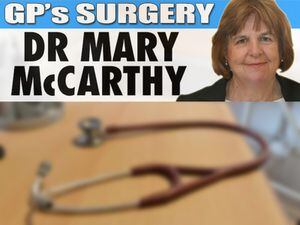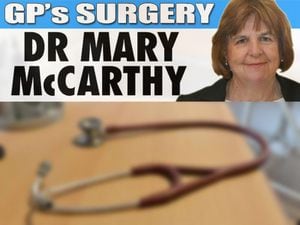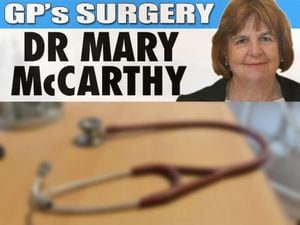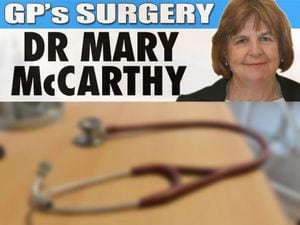Meeting of medical minds was a pleasure as new drugs revealed
This week I attended a meeting at the European Medicines Agency in Canary Wharf in London.

I’m still feel very privileged as a Shrewsbury GP to be able to attend these meetings, which brings together doctors, nurses and patients from all over Europe together.
The EMA is an EU organisation that has been in place since 1995 which was set up to supervise and approve the introduction of new medicines into healthcare systems.
Its purpose is to ensure that drug trials are professionally and ethically performed as is evidenced by a new policy that was proposed demanding greater transparency. To this effect, pharmaceutical companies are now being asked for the results of all trials, not just the successful ones.
It may be just as useful to know a neutral or even a negative result of a drug trial as to learn of the positive results. It can be helpful in establishing what does and doesn’t work, though it is the drugs that do work get greater publicity.
There are currently lots of new drugs in the pipeline. Ones for cancer, diabetes, new antibiotics and drugs for arthritis. As such, trials are continually being carried out with the overall aim of developing more effective medications to combat both common and rare diseases.
The EMA has always been keen to bring patient voices into the discussion. As a result, there were representatives of many patient organisations sitting round the table. As well as representatives from the general patient associations, there patient reps who associated themselves with specific problems such as Multiple Sclerosis, diabetes and AIDS.
A range of doctors specialising in diseases spoke about their specific concerns including a doctor who was expert in childhood diseases.
The subject of vaccinations came up in one session, since not every European state has the call and recall system that the UK has. One of the great advantages of Aneurin Bevan’s vision for the NHS is that every person in the UK is registered with a GP practice and has an NHS number so that tracking children who need to be vaccinated is a relatively easy process.
Other European states rely on parents bringing their children to be vaccinated and that method is not always reliable. Romania, for instance has had problems in getting enough children vaccinated to provide a “herd immunity” and, as a result, there have been more than thirty deaths from measles - a disease that should be preventable.
The EMA are planning a public education campaign with messages on social media and television as well as a video with many different voices all giving the same message: “vaccination protects children from diseases that may kill”.
The EMA is also involving individual patients, using structured interviews on how they feel about their disease and their medication regimes. They want to use the same language in each country but, of course, statements don’t always translate precisely into different tongues and there was some debate about how equivalent processes were to be managed.
They also discussed how to get a child’s perspective on living with illness and the importance of giving weight and value to the carer’s point of view, whether that is a parent or not. It was a fascinating day but sad to learn that due to the decision to exit the EU, the UK will not be as intimately involved as it has been.
There is the worry that UK pharmaceutical firms will relocate in Europe and that our opportunity to access new drugs may be diminished. Indeed, the EMA is due to move to Amsterdam. Let’s hope that we can find some alternative to keeping the same high standards here in the UK following Brexit.
* Dr Mary McCarthy is chair of the local medical committee and represents Shropshire, North Staffordshire and South Staffordshire on the General Practitioners Committee of the BMA. She has worked at Belvidere Surgery in Shrewsbury for more than 20 years.





